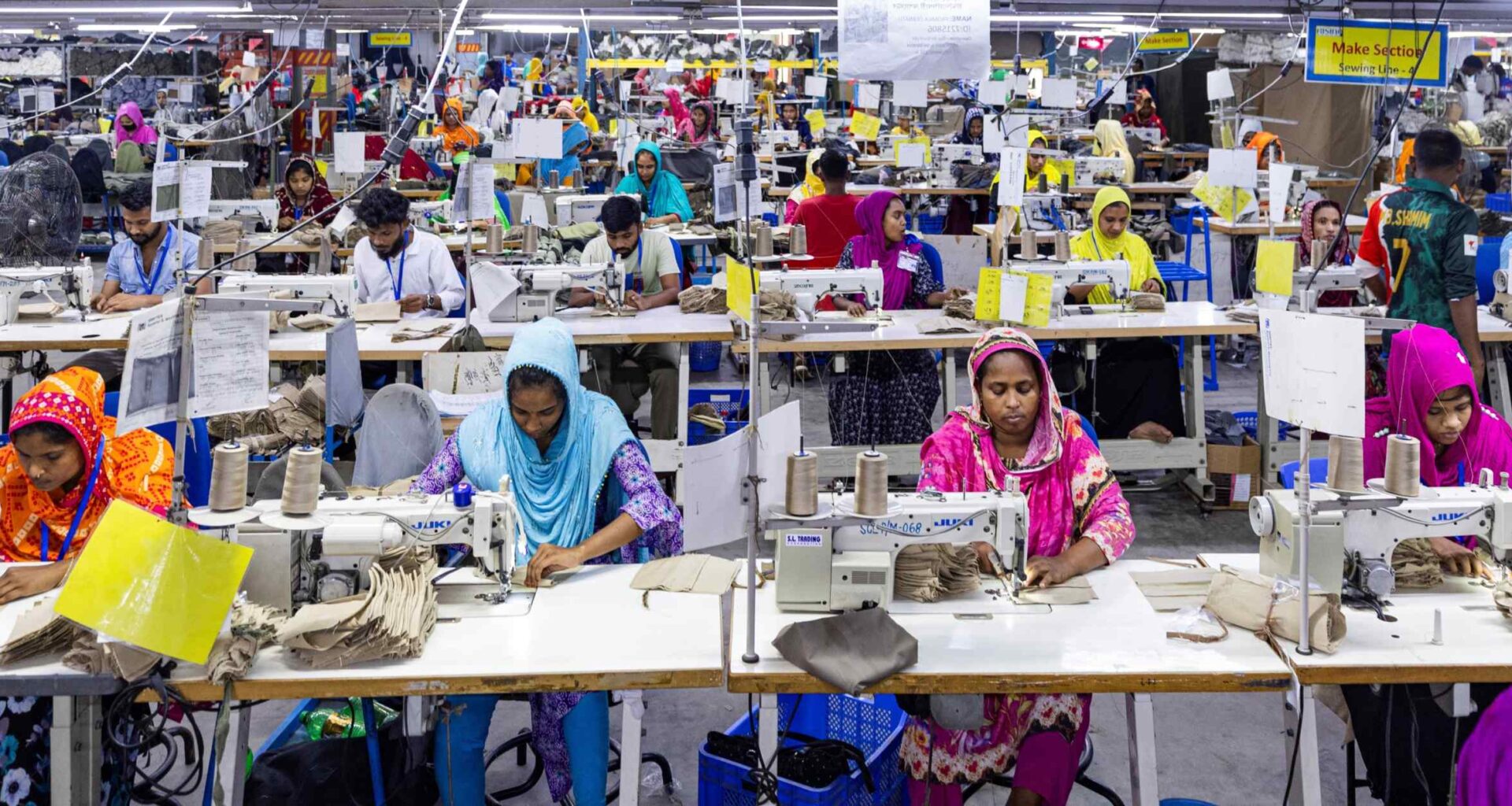ASHULIA, Bangladesh — As day broke one recent bright morning in Ashulia, a northwestern suburb of Dhaka, thousands of women and men hustled along narrow, potholed roads past security guards directing traffic to protect pedestrians and modulate flows into the area’s clothing factories.
Workers like them in this industrial zone, which alone generates a majority of the export earnings of this nation of 173 million people, have maintained this routine over most of the past year, even as Bangladesh has gone through its greatest period of political tumult since its 1971 war of independence.

